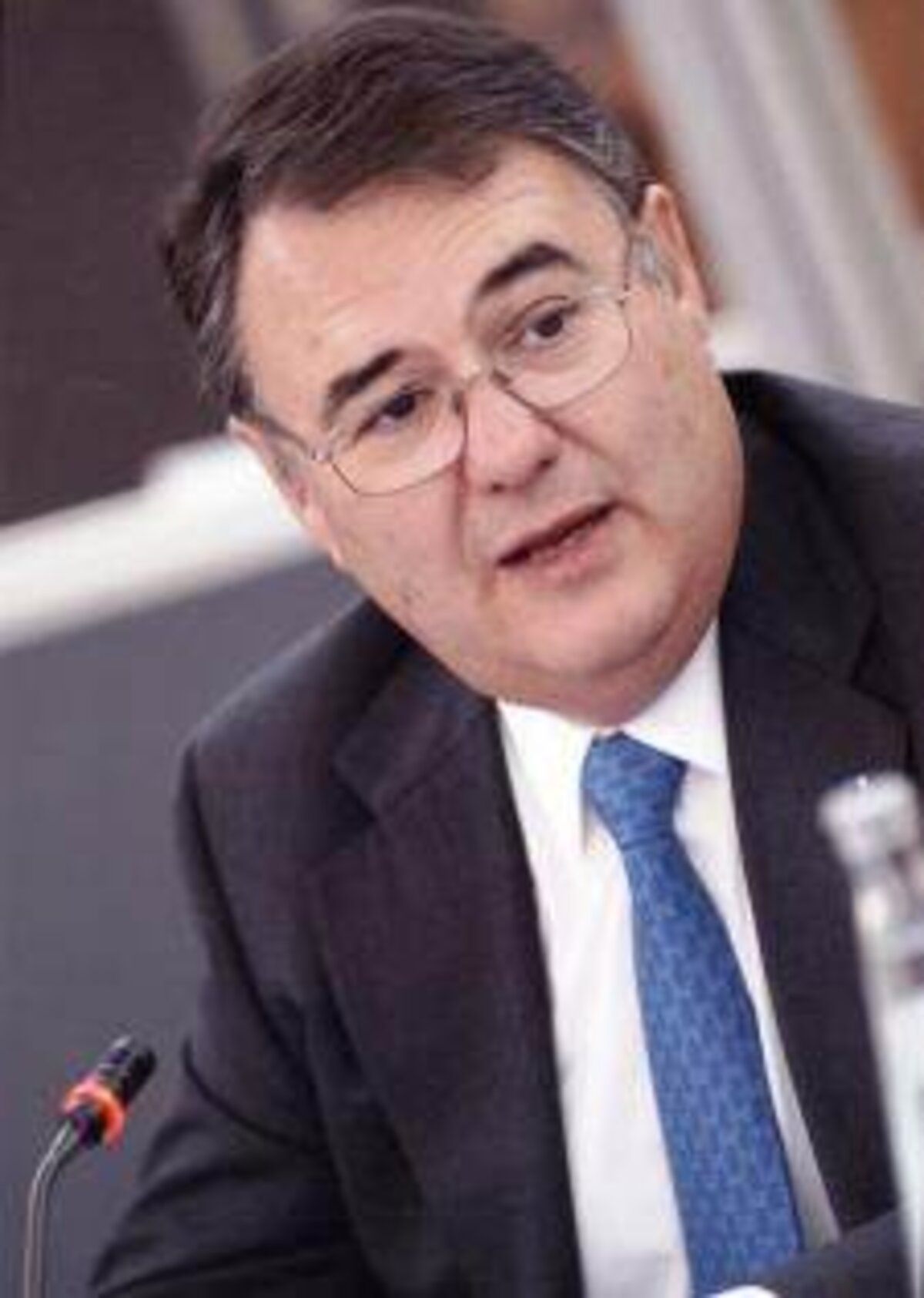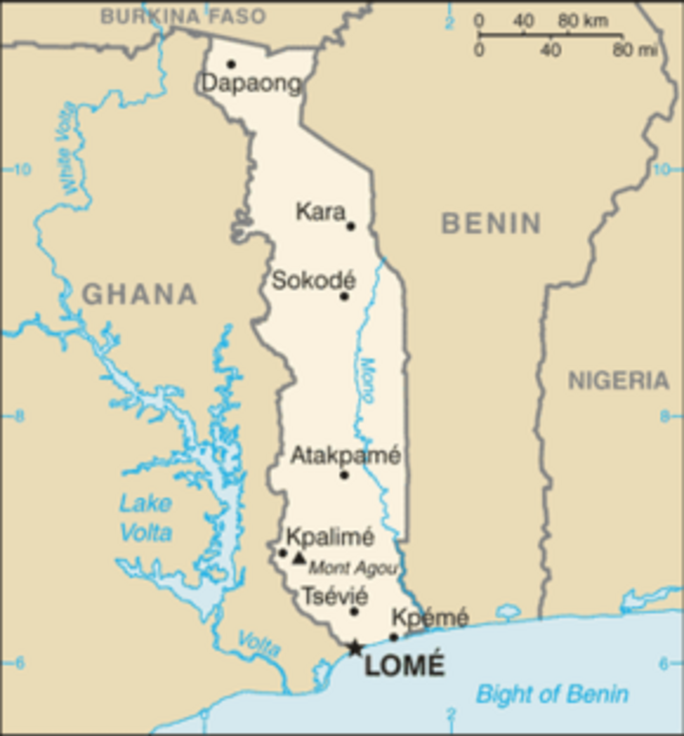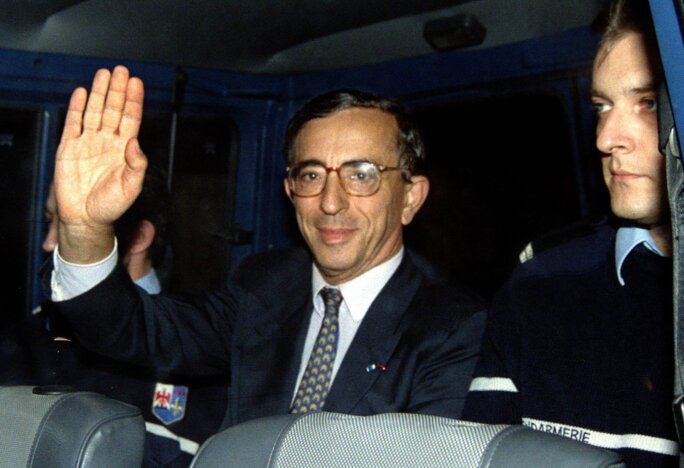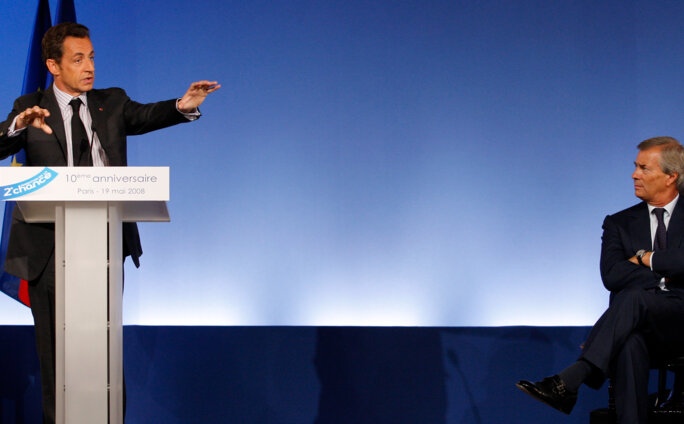The former head of an international maritime port management company has accused French President Nicolas Sarkozy of bullying African governments into entering into contracts with the Groupe Bolloré, headed by the president's close friend Vincent Bolloré.
In an exclusive interview with Mediapart, Jacques Dupuydauby, who recently retired as chairman of Franco-Spanish group Progosa, accuses President Sarkozy of threatening several French-speaking West African leaders with a withdrawal of French support unless they agreed to hand lucrative port management concessions to the Groupe Bolloré.

Dupuydauby, 65, alleges that Togolese President Faure Gnassingbé and Congo-Brazzaville President Denis Sassou N'Guesso personally confided to him that it was because of pressure exerted by President Sarkozy that his company lost operating concessions in both countries, where they were handed to Bolloré.
"When Monsieur Bolloré sets himself up somewhere, he takes hold of everything, notably the strategic infrastructures for transport, everything, and he uses the French president as his high-class travelling salesman," said Dupuydauby. "Under Sarkozy, the message is ‘If you don't do what we ask in giving such and such a thing to Bolloré, you will no longer be able to count on France's support'".
Dupuydauby also calls for the setting up of a parliamentary enquiry into "the political support provided to the private investments of Monsieur Bolloré in Africa, the pressure put on African States, the methods of attribution of markets to the Bolloré group and who profited from it."
He accuses Vincent Bolloré of "orchestrating" events which led to his sentencing by a Togolese court this year to 20 years in prison on corruption charges. "I do not even know what, factually, I am accused of," he told Mediapart. "I ask myself questions about this so-called judgment that follows a so-called trial to which we were not even summoned."
He readily admits that he is himself "no spring chicken". Close to former French president Jacques Chirac, who has a longstanding enmity with Nicolas Sarkozy, Dupuydauby has a fierce personal and business rivalry with Bolloré, with whom he was once a business partner, that began in the late 1990s and which heightened after he established Progosa in 1999. He was previously vice-chairman of French construction group Bouygues, and came under investigation in France over his suspected involvement in corruption connected to a company funded by the group.
In this interview with Mediapart, he says his retirement from business activity has defused his revelations here of any "personal" interest. "In my view, it's necessary to put Sarkozy and his connections, the first of which is Bolloré, out the door of the Elysée," he adds. "It's time to put an end to the system".
-------------------------
Mediapart: Your company Progosa was awarded the operating concession for the port of Lomé in Togo in 2001, which you abruptly lost in 2009. What happened to explain the turnaround in the situation?
Jacques Dupuydauby: The election of Nicolas Sarkozy happened. After the Lisbon summit on the theme of Europe-Africa in 2007, the current president of Togo, Faure Gnassingbé, who I saw every month, suddenly explained to me ‘I have a big problem'. During the Lisbon summit, Sarkozy told him that France supported its friends, of which Togo was one, but in exchange France expected its friends to behave towards it in a manner that is, let's say, friendly.
Mediapart: Meaning?
J.D.: That is to say, I quote, ‘when one is the friend of France, one is the friend of French companies'. And Sarkozy asked him [Gnassingbé] to give the management of the port of Lomé to the group belonging to his [Sarkozy's] friend Vincent Bolloré.
Mediapart: Did you learn that from the mouth of the Togolese president?
J.D.: Perfectly so. Several Togolese ministers also confirmed this to me. Faure Gnassingbé told me he was going to resist, but he was unable to. For the guilty person in this affair is not Faure Gnassingbé. You are president of Togo, you have elections approaching, you know that that's going to be very tense, as a result you hope that the French government recognizes your legitimacy. That type of diplomatic gesture still has a lot of importance in French-speaking Africa. What happened next is quite simple to understand.
'Bolloré took everything'
Mediapart: Concerning what happened next. You were sentenced by a court in Lomé on September 7th this year to 20 years in prison and fined 350 million euros for ‘breach of trust', ‘fraud', ‘use of fraudulent means', ‘tax fraud', ‘deliberate destruction' and ‘organising a criminal group'. What was the origin of this case?

J.D.: It is a crazy story. We were not even informed of this judgement by the Togolese state, nor by anyone else. And for good reason. As of our departure [from Togo] in 2009, we knew that we could no longer return there, our offices being occupied and our files seized. In 2009, when the Bolloré group began chasing us out of Lomé, we knew only that there was a tax inspection launched against us.
In May 2009, when I wsa in Bukina Faso, the Togolese authorities, led by president Gnassingbé's special advisor, the former lawyer Charles Debbasch, entered one of the houses rented by my company in Togo to take away our archives. The very same ones that we are today accused of having made disappear. Extraordinary.
When we saw what was happening, we did not return to Togo from Burkina Faso. And that's how we were accused of having run away, whereas we left the territory legally, I have my stamped passport at your disposition, and that an international arrest warrant was issued against us. Well, supposedly so.
Along with several of my collaborators, we went to [Burkina Faso capital] Ouagadougou, where we placed ourselves under the protection of President Blaise Compaoré. Our local director, Moniseur Broutin, spent 45 days in prison in Togo. And the French embassy did not lift a finger, did not even visit him. The local authorities finally released him because they were afraid that he would die in prison. For me, all of this affair was orchestrated by Monsieur Bolloré.

Enlargement : Illustration 3

Mediapart: How do you know that?
J.D.: In the hour that followed our departure, Bolloré took over the concession of the port of Lomé. They took everything. Within one hour, the Bolloré managing director was named director of our companies. After that, all of our attempts for indemnities were frustrated by Charles Debbasch who, on top of being an advisor to the Togolese president, apperars also to be Bolloré's secular arm in the country.
And at the beginning of October I learnt through an official Togolese internet site, Republic of Togo, that I had been sentenced to 20 years in prison. But the judgment is the result of nothing. I was never summoned for questioning in the case. I do not even know what, factually, I am accused of. I ask myself questions about this so-called judgment that follows a so-called trial to which we were not even convoked.
Mediapart: Do you intend to lodge an appeal against the sentence?
J.D.: We have engaged a lawyer, former justice minister of Togo, Me Abi, who will oppose the sentence. But I remind you that, in this trial, the civil parties are the Togolese state and the Bolloré group.
'I directly accuse Sarkozy'
Mediapart: According to you, the Togolese justice system was manipulated?
J.D.: I earnestly ask myself questions about the manner in which the Togolese justice system operates, and about its independence towards everything. But my [personal] conviction is that he who pulls all the strings in Togo, on the justice system as with the rest, is called Charles Debbasch, who was convicted in France in the Vasarely affair, [and who has been] clearly protected for some time given that he moves around freely and, to my knowledge, he has not been exempted from his sentence. It's true that, in the meantime, he has written magnificent books to the glory of President Sarkozy. These works are available on the internet.
Mediapart: But you yourself, when you had the Lomé port concession, you engaged Charles Debbasch as a jurist. You even published the fees for his work on your blog.
J.D.: You will explain to me how one can work in Togo without having the need for the services of lawyer Debbasch, [who is] today the struck-off lawyer Debbasch. If you know one single company in Togo that has been able to work without going through him and his eminent judicial advisers, you'll let me know. I have asked my French lawyer, Jean-Pierre Mignard [1],to study the possibility of lodging a lawsuit in Paris over these [practices].

Enlargement : Illustration 4

Mediapart: If one believes what the Togolese president confided to you, as recounted by you in this interview, Nicolas Sarkozy would have been at the origin of the eviction of your group from Togo?
J.D.: Totally. Absolutely. I directly accuse Sarkozy. What's more, I point out to you that a Socialist MP, Jean Launay, lodged a question with the government in October 2010 over the pressures exerted by Nicolas Sarkozy in favour of the Bolloré group in Togo. The Minister of Foreign Affairs at the time, Bernard Kouchner, did not deny [this]. He avoided making any comment.
Mediapart: Is the case of Togo unique?
J.D.: Of course not. There is the Congo, among others.
Mediapart: Who intervened against you in the Congo ?
J.D.: Always the same. Sarkozy, directly. The heads of state themselves have confirmed this. [Congolese President] Sassou N'Guesso, who I have known for 30 years, told me ‘I am sorry, I would like to give you the port of Pointe Noire, but I cannot. Sarkozy has placed his veto'. I have good relations with several African leaders, since the end of the 1970s, and I never experienced that before. When Monsieur Bolloré sets himself up somewhere, he takes hold of everything, notably the strategic infrastructures for transport, everything, and he uses the French president as his high-class travelling salesman. Monsieur Sarkozy, on his side, puts Franco-African relations into the equation and puts on the pressure. How do you expect a head of state to resist?
Mediapart: Did you hear the same things in Cameroon?
J.D.: In Cameroon, we won the tender for the port of Douala. The World Bank supported the attribution. President Biya wanted to give us the concession. Monsieur Sarkozy intervened over that and said to the Cameroon president ‘It's not Dupuydauby who will come and get you out when you'll be encircled inside your [presidential] palace'. A Cameroon investigating magistrate tried to bring the case to light. In vain.
Mediapart: How many concessions have you lost since Nicolas Sarkozy's election?
JD: We didn't get Cameroon and we lost Togo and Gabon. Before Monsieur Sarkozy's election, there was a classic war between industrial groups. Because we were cheaper and at least as good, we could win. The battle was politically balanced, even if it was financially imbalanced, because Bolloré has methods of persuasion that we don't have.
Mediapart: This system of State intervention that you describe is not all that new.
JD: Let me be very clear. When there is an international tender for bids, that the ambassador go tell the authorities in place that France would appreciate that he view the case a particular way, I don't find that abnormal. On the other hand, it is abnormal for ambassadors to become errand-boys for Bolloré and to serve as a conduit to the Elysée [French Presidential office]. Under Sarkozy, the message is ‘If you don't do what we ask in giving such and such a thing to Bolloré, you will no longer be able to count on France's support'.
-------------------------
1: Jean-Pierre Mignard, lawyer for Jacques Dupuydauby, is also a legal counsel for Mediapart.
Break with the past
Mediapart: There are political threats, but to obtain markets, isn't money needed too?
JD: That has always been the case, yes. What I'm denouncing, is the fact that the President of the French Republic, directly then indirectly, puts pressure on African Heads of State so that concessions be awarded to Bolloré, or taken away from Bolloré's rivals to be handed over to Bolloré using the argument ‘if you don't do as we ask, France will no longer support you'. Monsieur Sarkozy uses his function as [president] so that his mate can pick up concessions at the expense of others.
Mediapart: And former French President Jacques Chirac didn't do that?
JD: Oh no. I can assure you of that. France would signify its wish to see the French win, but that's normal. Monsieur Sarkozy's predecessors did not proffer threats of a diplomatic nature to favour the affairs of one person or another.

Enlargement : Illustration 5

Mediapart: What is the interest for Nicolas Sarkozy?
JD: Philanthropy, friendship. Something struck me. After having cruised on the Paloma, Bolloré's yacht [1], Sarkozy said, ‘I want there be a lot of entrepreneurs like Monsieur Bolloré in France'. Then, Monsieur Sarkozy explained to us that Monsieur Bolloré's group had never worked for the State. Monsieur Bolloré has been reimbursed a hundredfold for the use of his yacht and his planes.
Mediapart: Do you have reason to believe that there are other financial backdrops to this support?
JD: Go and ask [President Sarkozy's former chief-of-staff] Monsieur Claude Guéant why, two weeks before the war in Libya he arranged for Monsieur Bolloré to snatch the port of Misrata. He got it thanks to the Gaddafi system before the war and he is preparing to hang on to it since. Another example, Ivory Coast. Monsieur Bolloré obtained a monopoly on the port of Abidjan, a gold mine, thanks to President Gbagbo, under conditions that were legally incredible. I note that, a few days before his fall, Monsieur Gbagbo decorated Monsieur Bolloré and that Bolloré supported Gbagbo to the farthest extent possible.
Monsieur Ouattara, who beat Gbagbo at the last elections, explicitly accused a polling institute owned by the Bolloré group of having delivered polls favourable to Gbagbo. Monsieur Ouattara finally achieves power: he invites Monsieur Bolloré to sit at the table of honour on Inauguration Day. What do you think happened? A businessman who is very close to the president told me that Sarkozy himself demanded from Monsieur Ouattara that Bolloré retain all of his positions on the port of Abidjan.
These facts can be checked. One time, there's a question. A second time, one has doubts. The third time, it becomes a form of certainty. At the fourth, you're seeing a pattern. We've moved from Monsieur Bourgi's attaché cases [2], which were an open secret, to something much more powerful. We've gone from 'La Françafrique' of attaché cases to the 'Sarkafrique' of concessions.
-------------------------
1: Immediately after his election as president in May 2007, Nicolas Sarkozy left for a Mediterranean cruise onboard Vincent Bolloré's luxury yacht La Paloma.
2: Robert Bourgi, 66, an informal advisor to President Sarkozy on African affairs, who recently accused former French president Jacques Chirac, former Prime Minister Dominique de Villepin and former head of the far-right Front National party, Jean-Marie Le Pen, of receiving secret cash payments from African leaders. They have all denied the claims. For more on this story, click here.
3: La Françafrique is the name given to the cosy and corrupt relations between successuive French and black African governments, many of them authoritarian regimes, involving secret networks and behind-the-scenes diplomacy to serve the interests of both. For more on the history of French diplomacy in Africa, click here.
The president's men
Mediapart: One might imagine that there was the same type of message to Omar Bongo in Gabon to favour the attribution of such and such an oil concession to Elf [now Total].
JD: I can speak only about what I know. But the stakes at the national level were different with oil upon which, according to [former French president] General de Gaulle, depended a part of France's energy independence. Can you tell me what is the strategic interest for France in giving a concession to Monsieur Bolloré?
Mediapart: There is an argument about defending French business interests.
JD: And Getma, the company chased out of the port of Conakry, Guinea, by Bolloré, isn't that a French firm? It is a French firm. It has its offices close to the Champs-Elysées. All of this can be likened to a system. In any case it is systematic. With the pressure and the [secret] parallel envoys.
Mediapart: Who are these envoys?
JD: Patrick Balkany [1], MP and mayor of [Paris suburb] Levallois-Perret, a close ally of Nicolas Sarkozy, plays, for example a considerable role in this system. And he is certainly there to represent French probity. Frankly, when you see this official from the Hauts-de-Seine [département, or county] permanently accompanying the President of the Republic on his African trips then coming back to those countries to deliver messages, it is nauseating. When you see the place Alain Carignon ([2], another great figure of French probity, next to Brice Hortefeux [3], who is very active in all African affairs, one is disgusted.
Mediapart: Why should what you are denouncing today be considered as anything other than vengeance against the Bolloré group by a sore loser?
JD: Ah, me, I have lost. That's for sure. He eliminated me. I'm 65 years old, I'm taking my retirement. I am no longer active in this sector. I've sold my group's commercial property. It's a problem that no longer concerns me personally. In my view, it's necessary to put Sarkozy and his connections, the first of which is Bolloré, out the door of the Elysée. I note that Messieurs Sarkozy and Bolloré have the same advisor, [economist] Alain Minc. It's time to put an end to the system. The Bolloré system is tentacular.
Mediapart: Are you calling for a parliamentary investigation?
JD: I think the functioning of the Sarkozy system in Africa, of which Bolloré is the lynchpin, would be an excellent subject for a parliamentary investigation. But in the Senate, which has just swung to the left, I've read that the new majority is looking at subjects that could mark the change. Here's a good subject, the political support provided to the private investments of Monsieur Bolloré in Africa, the pressure put on African states, the methods of attribution of markets to the Bolloré group and who profited from it.
Mediapart: In the book ‘Sarko m'a tuer' [4], you tell the authors that, in the early 1980s when Nicolas Sarkozy was mayor of Neuilly, and a lawyer, he asked the company you then headed to cover fictive legal fees issued in his favour. What was the Elysée's reaction to what you said?
JD: None. Perhaps they know that I have archives.
-------------------------
1: Patrick Balkany was convicted in 1996 for misuse of public funds.
2: Alain Carignon was convicted in 1996 for corruption, misuse of corporate assets and jury tampering.
3: Brice Hortefeux is a long-standing close friend and ally of President Sarkozy under whom he notably served as interior minister.
4: 'Sarko m'a tuer', (Sarko killed me) by journalists Gérard Davet and Fabrice Lhomme, published in September, is a compilation of accounts by people - including magistrates, police officers, businessmen, politicians and journalists - who claim to have been the target of damaging spite and vengeance by President Nicolas Sarkozy and his entourage. The French title contains a deliberate misspelling. Click here for more.
-------------------------
English version: Patricia Brett and Graham Tearse
(Editing by Graham Tearse)


